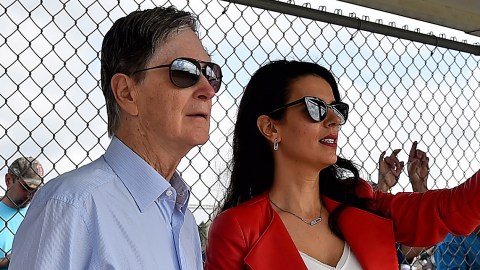 There is one word to describe an NBA player who chooses to sign a contract extension with his current team, rather than testing free agency.
There is one word to describe an NBA player who chooses to sign a contract extension with his current team, rather than testing free agency.
That word is not "loyal." It is "foolish."
Paul Millsap, in what has become a regular practice for players nearing the end of their contracts, appears close to turning down a contract extension with the Utah Jazz to explore his options in free agency next summer. In shorthand, Millsap leaning toward free agency may suggest an unlikelihood that he will continue his career in Utah, and that the Jazz may want to consider trading him before he departs next offseason without even a trade exception coming back in return.
But choosing free agency over a contract extension is little more than a clerical move now for most players, Millsap included. By signing now, Millsap is only eligible for a four-year extension — which in effect is only a three-year, $25 million extension, because under the new collective bargaining agreement contract extensions include the years remaining on the current deal.
Should Millsap play out his contract and re-sign with the Jazz, he would be eligible for five years and up to $16.4 million per year. It is doubtful Millsap would be offered that much money — or that the small-market Jazz could pay it — but the underrated power forward would certainly leave a lot of money on the table if he were to sign an extension. Even if the Jazz and Millsap cannot agree to a new deal, another team could offer him a four-year contract as a free agent. No matter what, Millsap can receive a longer-term deal as a free agent than he would by signing an extension.
At 27 years old, this is most likely the last and only big deal of Millsap's career, so it is in his own best interest to make it count. Yet his case is now the rule, not the exception.
As with most things involved with the convoluted CBA, this has led to some confusion. Andrew Bynum's reluctance to sign a contract extension with the Lakers may make for a juicy headline, but in practice it is only logical since Bynum could be eligible for a longer contract next July. Similarly, Dwight Howard's reported "refusal" to sign an extension with the Rockets or Lakers if he is traded to one of those teams is a lot less significant than it sounds. Again, Howard would be giving up a substantial amount of money if he agreed to an extension with any team. While some observers construe Howard's refusal to sign an extension as a sign that he does not want to play there, it may be merely a sign that Howard would turn down an extension from any team in order to get a more lucrative deal in free agency.
From a fan's perspective, this may seem disappointing. Jazz fans want to see Millsap stay in Utah, and the idea of Millsap turning down millions in hopes of making more millions might seem distasteful. But the setup creates advantages for teams, too. More years, more money and the ability to exceed the salary cap make it easier, in theory, for teams to retain their own free agents. Likewise, the team gains payroll stability because the player is dissuaded from pressuring the team into constantly plugging on more and more lucrative extensions, since it is in the player's interest to play out his contract.
Whenever a player announces that he intends to test free agency, the natural reaction may be to call him disloyal. Under the current CBA, though, the player is only doing what is best for him, and, simultaneously, may be doing what is best for the organization as well.
Have a question for Ben Watanabe? Send it to him via Twitter at @BenjeeBallgame or send it here.
Photo via Facebook/Utah Jazz



